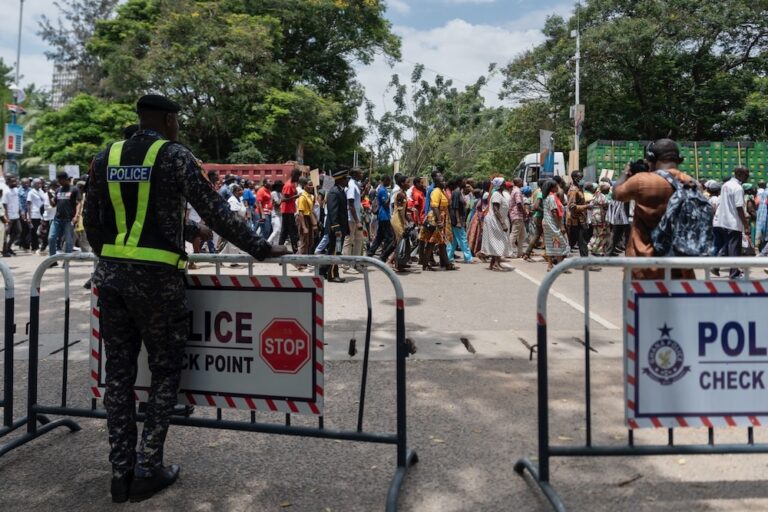(MFWA/IFEX) – Less than two months before presidential and general elections in Ghana, radio stations operating in the Northern Region of the country have been banned from broadcasting “political” discussions, interviews and phone-in programmes. Deputy Minister for the Region Charles Bintim, who is also chairman of the Northern Regional Security Council (REGSEC), imposed the ban […]
(MFWA/IFEX) – Less than two months before presidential and general elections in Ghana, radio stations operating in the Northern Region of the country have been banned from broadcasting “political” discussions, interviews and phone-in programmes.
Deputy Minister for the Region Charles Bintim, who is also chairman of the Northern Regional Security Council (REGSEC), imposed the ban on 11 October 2004 in a meeting with directors and news editors of radio stations in Tamale, the regional capital.
Bintim gave no reason for the ban on “political discussion, interviews, newspaper reviews and phone-ins,” but the ban came after a 15-year old boy, Mohammed Amin Sumani, was shot and killed on 9 October. Bintim, without any evidence, claimed that 70 percent of supposed tension in Tamale is caused by the media.
Radio stations have denied the charge, claiming, on the contrary, that they had contributed to the attainment of peace in the region by producing “peace jingles” and providing “air-time for peace messages.”
Three of the radio stations operating in the area have protested the ban, which they say infringes on their constitutional rights to inform the people of the region.
In a statement issued on 22 October, three of the radio stations operating in the region, Diamond FM, Filla FM and Justice FM, protested the ban. They called on the REGSEC, “as a matter of urgency, to review the directive and allow [them] to carry political discussions and accept political messages, as the continuous ban is a violation of [their] rights and tantamount to gagging radio stations in the metropolis.”
While encouraging all radio stations and journalists in the Northern Region to be guided by their professional, ethical and constitutional obligations of responsibility and discretion, the MFWA protests the arbitrary ban on “political” programmes announced by the deputy minister.


